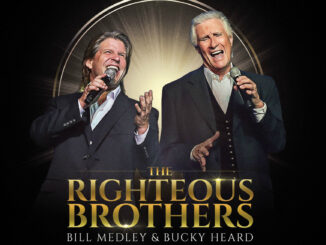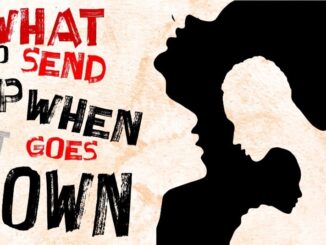
In 1936, a brash, young, Shepherd Mead, fresh out of Washington University, started his first job in the mail room at New York advertising agency, Benton & Bowles. He rose within the ranks, becoming a vice president before retiring to pursue a writing career. As a writer, Mead, tongue firmly in cheek, shared the secrets of his corporate success in his 1952 best seller, “How to Succeed in Business Without Really Trying, The Dastard’s Guide to Fame and Fortune.” The book is a caricature instruction manual for despicable people seeking success in the great American corporation. The book highlights the antics of the devious J. Pierrepont Finch, F-I-N-C-H (Ponty), window washer turned successful executive.
In 1961, with Frank Loesser’s score, Abe Burrows, Jacob Weinstock and Willie Gilbert adapted Mead’s book into the hit, Tony Award and Pulitzer Prize winning, musical “How to Succeed in Business Without Really Trying.” These dates are important to remember when enjoying this classic guilty pleasure performed by Music Theatre Works at the Cahn Auditorium in Evanston, wondering if you can or should still savor the show’s light satire of corporate mediocrity, conformity, classism and sexism. I saw the show with another woman, a former co-worker from corporate America, and we found it possible to enjoy the humor, the songs, the talented singers and dancers, and the costumes and set design while shaking our heads over its mid-century societal standards.

How to Advance from the Mailroom
The show opens with blue-collar, coverall-wearing, window-washing Ponty (played by Ken Singleton), taking instruction from Mead’s book while dangling from his harness. First, the book advises, “find a corporation so large that no one knows what anyone else is doing.” Ponty finds World Wide Wickets, unintentionally humorous in the modern world, as WWW. From there, Ponty follows the book’s advice on how to navigate corporate politics and nepotism, get his name and face in front of the right executives, find and exploit each executive’s quirks, and destroy the competition.
It works until it doesn’t. Ponty rises through the ranks swiftly, raising the ire of the other executives who conspire to bring him down. Then, Ponty makes it easy for them to do it. Having failed to read ahead in the book, he mistakenly manipulates himself into a job that requires big ideas and a considerable amount of work. He must create an advertising campaign in two days. It’s an impossible task, but Ponty has a few things going for him. WWW’s president, Mr. J.B. Biggley (played by Rick Rapp), is otherwise occupied with his pouty mistress Heddy LaRue (played by Nancy Hays). Ponty’s secretary, Rosemary Pilkington (played by Nicole Armold), believes in him, and Mr. Biggley’s nephew, Bud Frump (played by Jake Stempel), has an idea that seems worth stealing. Of course, it isn’t. On the brink of failure, Ponty marshals all his charm, wit and guts to protect the company, or at least, pass on the blame to someone else. From there, the story gets a little muddy, having left out one or two details I remember from prior versions.

Frank Loesser’s lyrics are, at times, brilliant, some are iconic. Mailroom manager, Mr. Twimble (played by Kirk Swenk) advises Ponty to survive by towing the corporate line in “The Company Way.”
So, you play it the company way?
Lyrics by Frank Loesser
Oh, company policy is by me ok.
You’ll never rise up to the top
But there’s one thing clear
Whoever the company fires
I will still be here!
Office workers’ coffee addiction is spoofed in “Coffee Break,” “If I can’t take my coffee break something within me dies…” And, of course, “A Secretary Is Not A Toy.”

When Ponty faces his biggest challenge, he serenades himself in the mens’ room with another iconic song, “I Believe In You:”
You have the cool, clear
Lyrics by Frank Loesser
Eyes of a seeker of wisdom and truth;
Yet there’s that upturned chin
And that grin of impetuous youth.
Oh, I believe in you.
The audience might recognize the authoritative voice of the narrator. Peter Sagal, host of NPR’s “Wait, Wait…Don’t Tell,” as a voice over narrator, reads excerpts from the titular book to the audience. Singleton displays all the lovable and deviously playful mischief of classic Ponty while making the role his own. He’s fantastic, singing, dancing and mugging his way up the corporate ladder. Nicole Armold is equally wonderful as Rosemary, the secretary who loves and believes in Ponty as much as he loves and believes in himself. Armold is a standout singer who deserved a much better, and better fitting, “Paris original” than costumes managed to provide for “Rosemary,” her big number with Singleton at the end of Act One. That dress didn’t fit any of the women in the show and it was more distracting than funny.

She should have kept it in the box.
Maisie Rose displays an engaging mix of the cynical and optimistic as Rosemary’s friend and fellow secretary, Smitty. Smitty forces Ponty and Rosemary into their first date in “Been a Long Day” and later begs Rosemary not to “turn down the prince” in “Cinderella, Darling.” Nancy Hayes nails Hedy’s voice while playing her lovable enough to avoid the groan-worthy stereotype of office bombshell. Jake Stempel,’s Bud, combines just the right amount whining and physical comedy required for the boss’ nephew and he makes some great exits in the elevator.

The Ensemble did a fine job, but at times, the big dance numbers seemed crowded against the thick walls of the set, particularly during Coffee Break and A Secretary is Not a Toy. Otherwise, the set is warm, colorful, attractive, and perfectly mid-century modern. It moves to create some more intimate office spaces while framing the entire stage to invoke the feeling of a mid-century storybook. The lighting is competent except the follow spots seem confused, and were probably unnecessary, in “Been a Long Day.”
But the question remains. Is “How To Succeed” respectably enjoyable in the modern world? It’s such a light satire that it almost celebrates, rather than skewers, bad behavior. Yet, that is mitigated to a degree by its underlying charm and playful mockery of corporate foibles through the lens of the 1950s and 1960s. However, as much as I’d like to let “How to Succeed” off the hook for being hopelessly dated, I can’t. However, there is a potential future for this show. Like this season’s Tony Award Winning Broadway revival of “Oklahoma!,” “How to Succeed” can be reimagined. Some future producer might put the women in charge or find another way to increase diversity among the characters. Another might insert some darker, more biting satire into deserving parts. Maybe, in another version, the philandering men will pay for their misdeeds and Hedy will take over or Ponty will keep Rosemary’s dinner warm in New Rochelle. I can’t wait to see what the future has in store for this amusing roast of corporate America.
You can find more information about Music Theater Works “How to Succeed in Business Without Really Trying” at their website. The show runs through June 16, 2019.
Photos by Brett Beiner




Be the first to comment